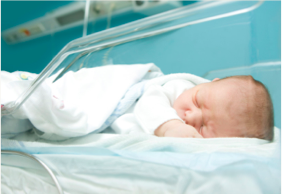Early intestinal microbiota exerts important stimuli for immune develop- ment and a reduced microbial exposure and Caesarean section (CS) have been associated with the development of allergic disease. In this study, the authors addressed how microbiota development in infants is affected by mode of delivery, and relate differences in colonization patterns to the maturation of a balanced Th1/Th2 immune response. The study was designed such that the postnatal intestinal colonization patter was investigated in 24 infants, born vaginally (15) or by CS (9). The intestinal microbiota were characterized using pyrosequencing of 16S rRNA genes at 1 week, and 1, 3, 6, 12, and 24 months after birth. Venous blood levels of Th1- and Th2- associated chemokines were measured at 6, 12, and 24 months. The results showed that infants born through CS had lower total microbiota diversity during the first 2 years of life. CS delivered infants also had a lower abundance and diversity of the Bacteroidetes phylum and were less often colonized by the Bacteroidetes phylum. Infants born through CS had significantly lower levels of Th1- associated chemokines CXCL10 and CXCL11 found in the blood. Gut 2013 August. PMID: 23926244









